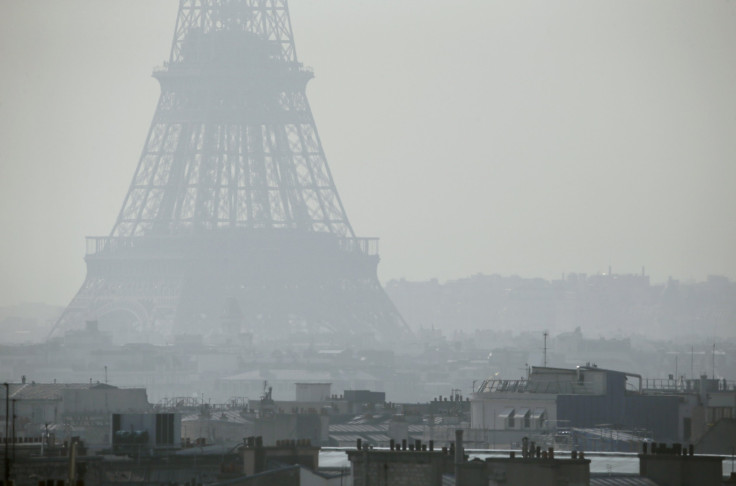Paris Introduces Traffic Restrictions In Bid To Curb High Levels Of Smog

Paris is to ban half of the city's cars from the road on Monday, in a bid to curb high levels of smog, which briefly made the French capital's air the most polluted in the world this week, according to reports.
The city's mayor, Anne Hidalgo, announced the measures Saturday, saying that cars with license plates ending in even numbers will be barred from the city's roads Monday. She added that public transport would be free in the city to encourage people to stay off the road, AFP reported.
There will be exceptions to the ban, including for emergency services vehicles, and private cars carrying at least three people.
"I am delighted the state has agreed to put in place a partial driving ban on Monday, which I have been requesting for several days," Hidalgo wrote Saturday on Twitter. She added that the "health of Parisians is not negotiable."
This is the third time in the city's history that such measures have been implemented, with the last occasion being in March 2014.
On Wednesday this week, Plume labs, a pollution-monitoring service which tracks 60 cities worldwide, gave Paris' air a pollution rating of 125, halfway between harmful and critical, France 24 reported. Anything above 100 is considered harmful.
Authorities in the city have been criticized over a lack of long-term initiatives to address the city's high levels of pollution. A measure set to become law in July will ban diesel vehicles manufactured before 2001, which are believed to be among the worst polluters, from the city's roads entirely, the Mirror Daily reported.
The French Association of Transport Users (FNAUT), however, was unimpressed, blaming “uninspired politicians” for a failure to take the problem seriously.
“We need long-term solutions including extra charges on heavy goods vehicles which the government backtracked from implementing last year. Paris also needs a congestion charge inside the city. This would reduce circulation and raise revenue. But all our politicians seem to do is wait for the rain and when it doesn’t come, they blame the weather for their failings,” said FNAUT spokesman Fabrice Michel told the National Monitor.
Nearby London has had a congestion charge in place since 2003, which sees most private vehicles entering the city center required to pay a charge equivalent to just under $15 per day. The scheme is generally regarded as having successfully reduced traffic congestion and pollution.
When Paris imposed similar restrictions in 2014, traffic dropped roughly 18 percent, and pollution particles measured fell by 6 percent, Quartz reported.
© Copyright IBTimes 2025. All rights reserved.






















